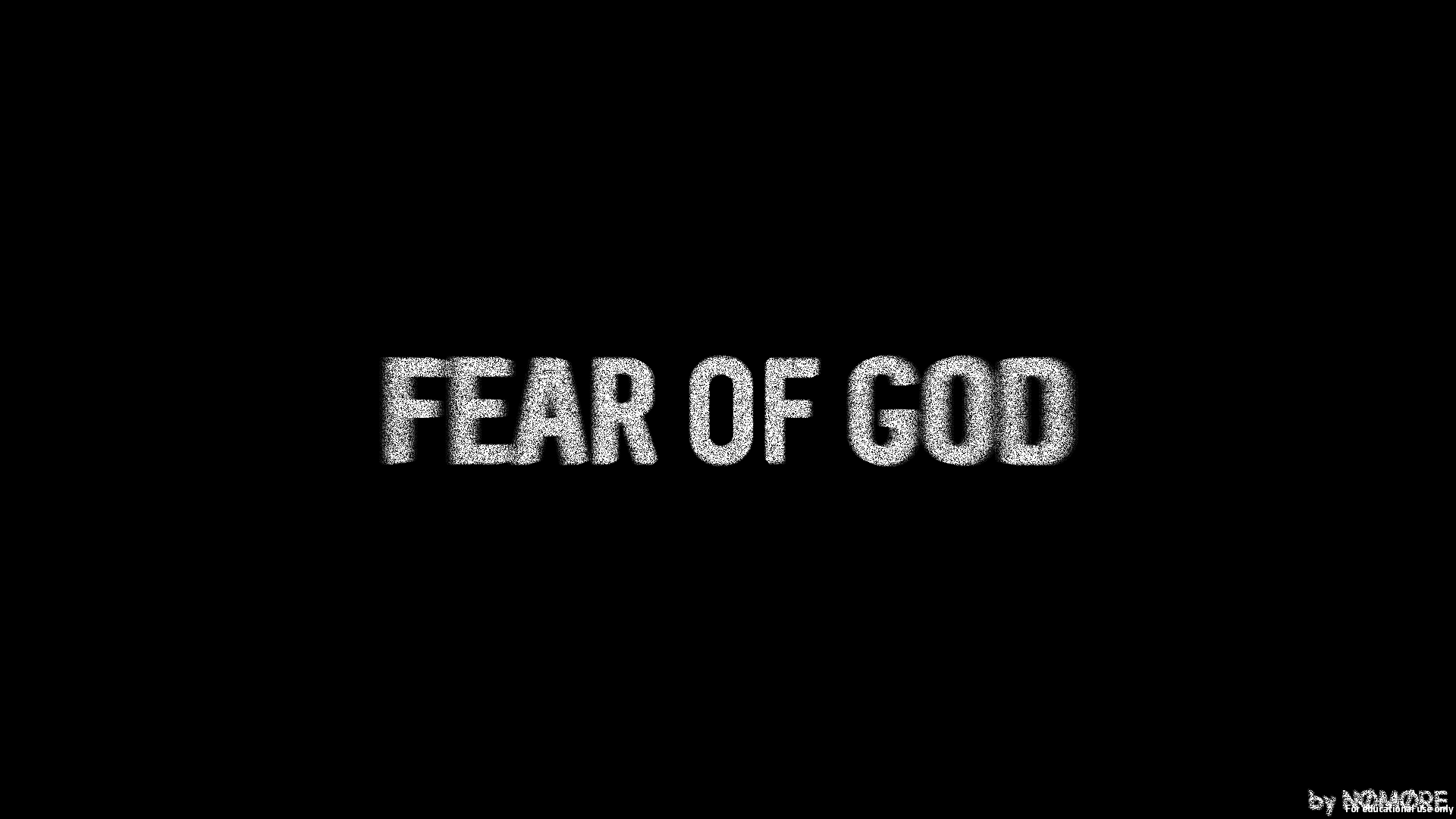Have you ever wondered what the Hebrew meaning of fear of God really is? It's not just about being scared or trembling in fear like we might think. The concept goes way deeper than that, diving into layers of reverence, awe, and a profound relationship with the divine. So buckle up because we're about to uncover some seriously fascinating stuff here.
You see, the phrase "fear of God" gets thrown around a lot in religious contexts, but its true essence often gets lost in translation. In Hebrew, the word "yirah" is used, and it carries so much more weight than just plain old fear. It’s like this rich tapestry of emotions and spiritual understanding that we’re about to explore together.
This article isn’t just about giving you a dictionary definition. We’re going to dive into the cultural, historical, and spiritual significance of the Hebrew meaning of fear of God. Think of it as a treasure hunt for deeper meaning, where every nugget of wisdom adds another layer to your understanding.
- How To Write A Nonrenewal Lease Letter To Landlord A Simple Guide
- Selena Vargas Xxx Unveiling The Truth Behind The Viral Sensation
What Does "Fear of God" Mean in Hebrew?
Let’s start by breaking down the word "yirah" (יראה), which is the Hebrew term most commonly translated as "fear" in English. But here’s the twist—it doesn’t just mean fear in the sense of being terrified. Yirah combines elements of awe, respect, and even love. It’s like when you’re standing at the edge of a cliff looking out over a breathtaking view—there’s a mix of wonder and a healthy dose of caution.
In the Bible, yirah shows up in different forms depending on the context. Sometimes it’s about recognizing God’s power and majesty, other times it’s about living in alignment with divine will. The cool thing is that this concept isn’t stagnant; it evolves based on the situation and the relationship between humans and God.
Breaking Down Yirah: More Than Just Fear
Okay, so yirah isn’t just fear. But what else is it? Well, picture this: you’re sitting in a quiet room, and suddenly you feel an overwhelming sense of presence. That feeling of being in the presence of something greater than yourself? That’s yirah. It’s a mix of reverence, admiration, and a touch of fear—all rolled into one.
- Mesopotamia Social Classes A Deep Dive Into The Ancient Societyrsquos Hierarchy
- Trey Gowdy Surgery A Comprehensive Look At The Procedure Recovery And Everything You Need To Know
- Reverence: A deep respect for God’s greatness.
- Awe: The feeling of wonder and amazement.
- Caution: Recognizing the boundaries of human limitations.
So when the Bible talks about fearing God, it’s not telling you to cower in fear. Instead, it’s inviting you to develop a relationship built on respect and admiration.
Historical Context: How the Hebrew Meaning of Fear of God Developed
To really grasp the Hebrew meaning of fear of God, we need to take a little trip back in time. The Israelites lived in a world where gods were everywhere—mountains, rivers, even the stars. But their God was different. He was the one true God, and the concept of yirah helped them navigate their relationship with Him.
In ancient times, fear of God wasn’t just a spiritual practice; it was a practical one too. It shaped how people lived their daily lives, from the food they ate to the way they treated others. The idea was that by living in harmony with God’s laws, they could experience peace and prosperity.
Key Biblical Passages
Let’s check out a few key passages that highlight the Hebrew meaning of fear of God:
- Deuteronomy 6:2: “That you may fear the Lord your God, to keep all His statutes and His commandments which I command you.”
- Proverbs 1:7: “The fear of the Lord is the beginning of knowledge.”
- Psalms 111:10: “The fear of the Lord is the beginning of wisdom.”
These verses show us that fearing God isn’t just about following rules; it’s about growing in wisdom and understanding.
Yirah in Daily Life: Practical Applications
Now let’s talk about how the Hebrew meaning of fear of God applies to everyday life. It’s not just something you do on Sundays or during religious ceremonies. It’s a mindset that permeates every aspect of your existence.
Think about it like this: if you truly fear God, it affects how you treat others, how you handle challenges, and even how you spend your free time. It’s about making choices that align with divine principles rather than just doing what feels good in the moment.
Living with Yirah: Tips for Modern-Day Practitioners
Here are a few practical ways to incorporate yirah into your daily routine:
- Start each day with a moment of reflection, acknowledging God’s presence in your life.
- Practice gratitude by listing things you’re thankful for.
- Make conscious choices that reflect respect for yourself and others.
These small actions add up to create a life filled with purpose and meaning.
Cultural Perspectives on the Hebrew Meaning of Fear of God
Different cultures have unique interpretations of the Hebrew meaning of fear of God. In Jewish tradition, yirah is often seen as a lifelong journey of learning and growth. It’s about striving to become a better person, both spiritually and morally.
In Christian theology, fear of God is sometimes associated with repentance and humility. It’s about recognizing your need for God’s grace and guidance.
Comparing Perspectives
While the core concept remains the same, the way it’s expressed can vary. For example:
- In Judaism, yirah is often tied to studying Torah and observing commandments.
- In Christianity, it might involve prayer, worship, and service to others.
Despite these differences, the underlying theme of reverence and respect for God remains constant.
Psychological Benefits of Embracing the Hebrew Meaning of Fear of God
Believe it or not, embracing the Hebrew meaning of fear of God can have some serious psychological benefits. Studies have shown that people who practice gratitude and mindfulness tend to experience lower levels of stress and anxiety.
When you live with yirah, you’re constantly reminded of your place in the grand scheme of things. This can lead to a sense of peace and contentment, even in the face of life’s challenges.
Science Meets Spirituality
Research has also shown that people who engage in spiritual practices often report higher levels of happiness and well-being. It’s like this perfect storm of science and spirituality coming together to create a more fulfilling life.
Common Misconceptions About the Hebrew Meaning of Fear of God
There are a lot of misconceptions floating around about the Hebrew meaning of fear of God. One of the biggest is that it’s all about being scared. But as we’ve seen, it’s so much more than that.
Another misconception is that fearing God means you have to give up all your fun. Not true! It’s about finding balance and living in harmony with divine principles.
Setting the Record Straight
Here are a few key points to keep in mind:
- Fear of God isn’t about being terrified; it’s about reverence and respect.
- It’s not about giving up everything you enjoy; it’s about making mindful choices.
By understanding these misconceptions, you can approach the concept with a clearer perspective.
Modern-Day Relevance of the Hebrew Meaning of Fear of God
In today’s fast-paced world, the Hebrew meaning of fear of God might seem outdated. But here’s the thing: it’s more relevant than ever. In a society that often values instant gratification and self-indulgence, embracing yirah can provide a much-needed anchor.
It’s about finding meaning in a world that sometimes feels meaningless. It’s about connecting with something greater than yourself and living a life that reflects those values.
Connecting with the Divine in a Digital Age
With technology taking over so much of our lives, it’s easy to lose sight of the spiritual. But the Hebrew meaning of fear of God reminds us to pause, reflect, and reconnect with what truly matters.
Conclusion: Embrace the Hebrew Meaning of Fear of God
So there you have it—the Hebrew meaning of fear of God isn’t just about being scared. It’s about cultivating a relationship built on reverence, awe, and respect. It’s about living a life that aligns with divine principles and finding peace in the process.
As you continue your journey, remember that fearing God isn’t a one-time thing. It’s a lifelong practice that evolves as you grow and learn. So take what you’ve learned here and apply it to your life. Share this article with someone who might benefit from it, and let’s keep the conversation going.
And hey, if you have any questions or thoughts, drop them in the comments below. We’d love to hear from you!
Table of Contents
- What Does "Fear of God" Mean in Hebrew?
- Historical Context: How the Hebrew Meaning of Fear of God Developed
- Yirah in Daily Life: Practical Applications
- Cultural Perspectives on the Hebrew Meaning of Fear of God
- Psychological Benefits of Embracing the Hebrew Meaning of Fear of God
- Common Misconceptions About the Hebrew Meaning of Fear of God
- Modern-Day Relevance of the Hebrew Meaning of Fear of God



Detail Author:
- Name : Mr. Ignatius Ullrich V
- Username : wkulas
- Email : antonina21@schiller.com
- Birthdate : 2004-02-04
- Address : 696 Brandon Pike Suite 246 Corbinland, KY 79561
- Phone : (660) 951-2076
- Company : Howe-Hirthe
- Job : Law Enforcement Teacher
- Bio : Similique voluptas consequatur vel deleniti. Et voluptatem eaque sint explicabo.
Socials
linkedin:
- url : https://linkedin.com/in/veum2014
- username : veum2014
- bio : Unde est rerum eum quod.
- followers : 4520
- following : 846
instagram:
- url : https://instagram.com/adolphus_xx
- username : adolphus_xx
- bio : Nobis sequi facilis reprehenderit enim in. Ut non fugiat consectetur quia nam.
- followers : 724
- following : 428
twitter:
- url : https://twitter.com/aveum
- username : aveum
- bio : Nihil laudantium ipsa dolores amet. Minus assumenda maiores accusantium aut id. Error aspernatur fugit unde consequuntur. Provident et laudantium ut harum aut.
- followers : 5706
- following : 61